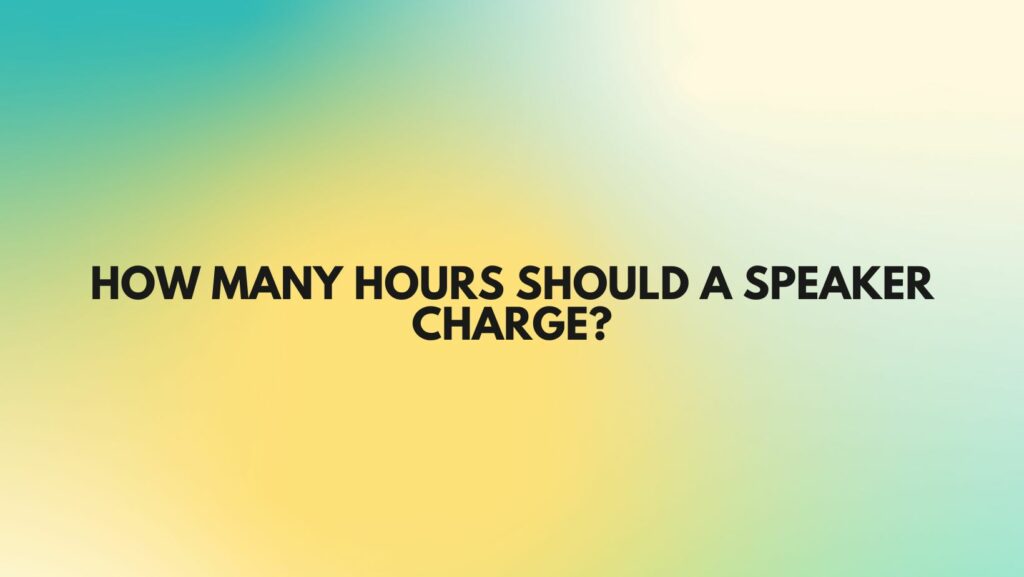As portable audio devices, speakers have become an essential part of our daily lives, whether we’re listening to music, podcasts, or audiobooks. However, unlike our smartphones, which we’re used to charging every day, speakers tend to have longer battery life, making us wonder when it’s actually time to charge them.
In this guide, we’ll explore the factors that influence speaker charging time and provide a general guideline for how long to charge your speaker to ensure optimal battery life.
Factors Affecting Charging Time:
The charging time for a speaker depends on several factors, including:
-
Speaker Battery Capacity: Larger battery capacities require longer charging times to fully recharge.
-
Charging Cable Type: Using the original charging cable or a high-quality compatible cable ensures efficient power delivery and reduces charging time.
-
Charging Adapter Output: The output of the charging adapter used to charge the speaker can affect charging speed. Using a higher-output adapter can reduce charging time.
-
Speaker Usage: If you’re using the speaker while it’s charging, it will take longer to fully charge. This is because the speaker is drawing power from both the charger and the battery.
General Charging Guidelines:
While the specific charging time varies depending on the factors mentioned above, here’s a general guideline for charging your speaker:
-
Charging from 0% to 100%: For most speakers, a full charge from 0% to 100% typically takes between 2 and 4 hours.
-
Charging from 50% to 100%: If you’re caught off guard and need to use your speaker quickly, charging it from 50% to 100% usually takes around 1 to 2 hours.
Optimizing Battery Life:
To extend the battery life of your speaker and reduce the frequency of charging, consider these tips:
-
Avoid overcharging: Once your speaker is fully charged, unplug the charger to prevent overcharging, which can damage the battery.
-
Use the speaker at moderate volume levels: Playing music at high volumes consumes more power, reducing battery life.
-
Turn off the speaker when not in use: Leaving the speaker on standby can drain the battery even when not actively playing audio.
-
Store the speaker in a cool, dry place: Extreme temperatures can affect battery performance and reduce lifespan.
Conclusion:
Charging your speaker is essential to keep it powered and ready for use. By understanding the factors that influence charging time and following the general guidelines provided, you can ensure that your speaker remains charged and ready to deliver your favorite music or audio content whenever you need it. Additionally, adopting battery-saving practices will help extend the life of your speaker’s battery, reducing the need for frequent charging.


